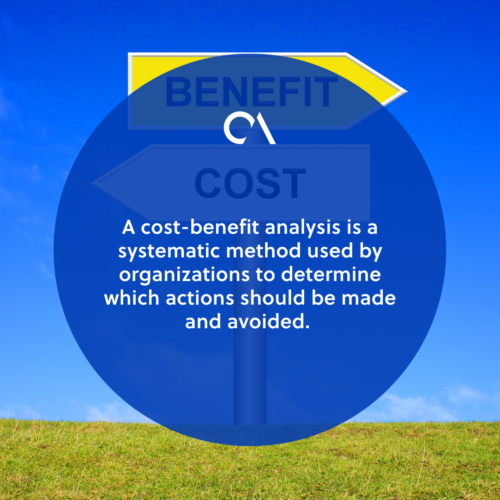Cost-Benefit Analysis
Definition
What is the cost-benefit analysis?
A cost-benefit analysis is a systematic method used by organizations to determine which actions should be made and avoided. The cost-benefit analyst adds up the potential benefits of a scenario or activity, then subtracts the overall costs of pursuing that action.
Many consultants or analysts create models to put a monetary value on intangible elements like the benefits and expenses of living in a particular area. A cost-benefit analysis can provide solid results that may be utilized to draw reasonable conclusions about the feasibility and advisability of a decision or scenario.

Benefits of cost-benefit analysis
A company or organization may decide to use cost-benefit analysis as part of its decision-making process for various reasons. First, the cost-benefit analysis helps simplify decisions by reducing them to costs versus benefits.
The cost-benefit analysis enables you to start writing down every possible cost and benefit involved in a project, which can help you find less-obvious aspects like indirect or intangible costs.
Cost-benefit analysis is also data-driven as it allows an individual or organization to assess a choice or potential project without regard to personal biases or prejudices.
As a result, it provides an unbiased and evidence-based assessment of your options, which can assist your company in becoming more data-driven and logical in its operations.







 Independent
Independent




